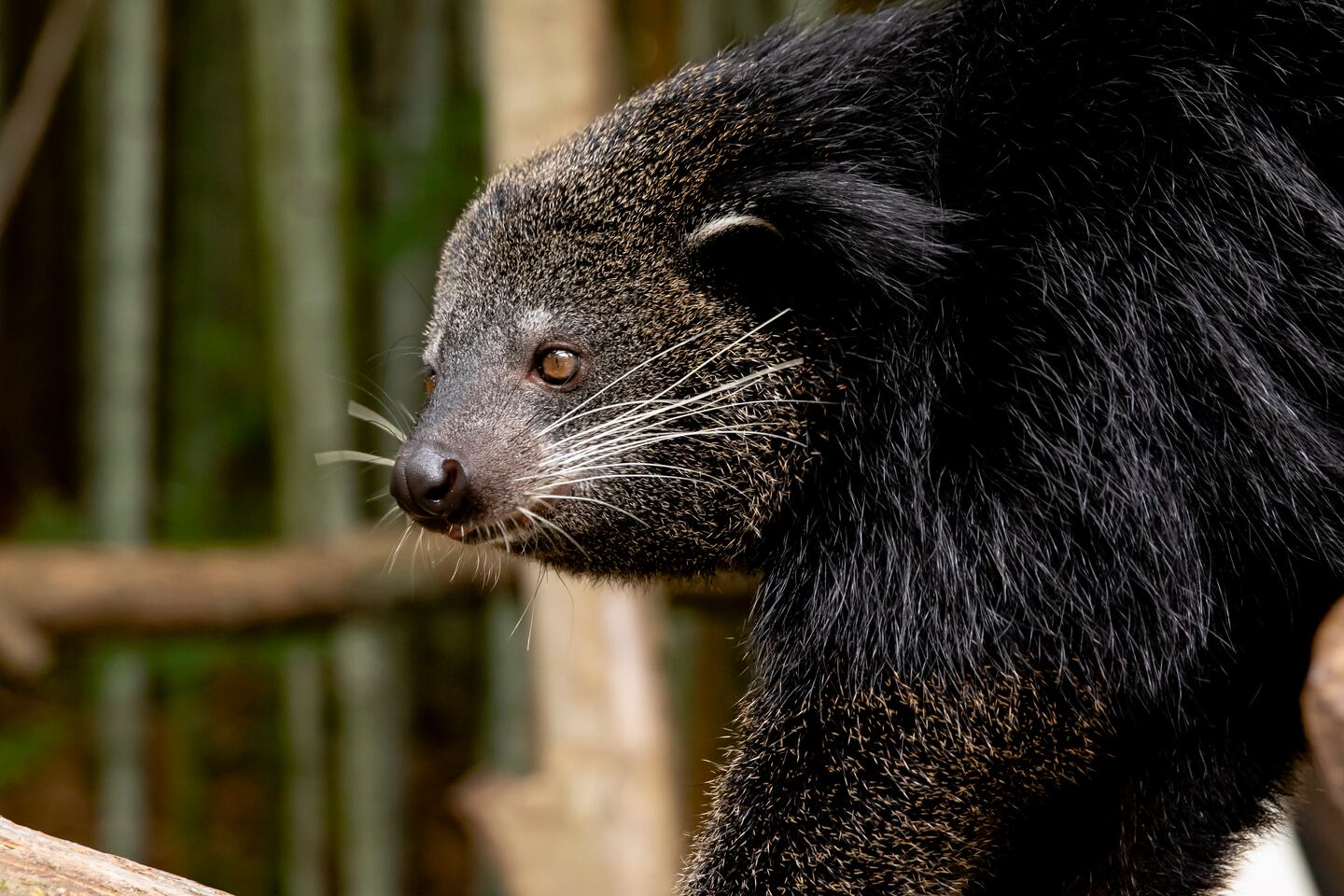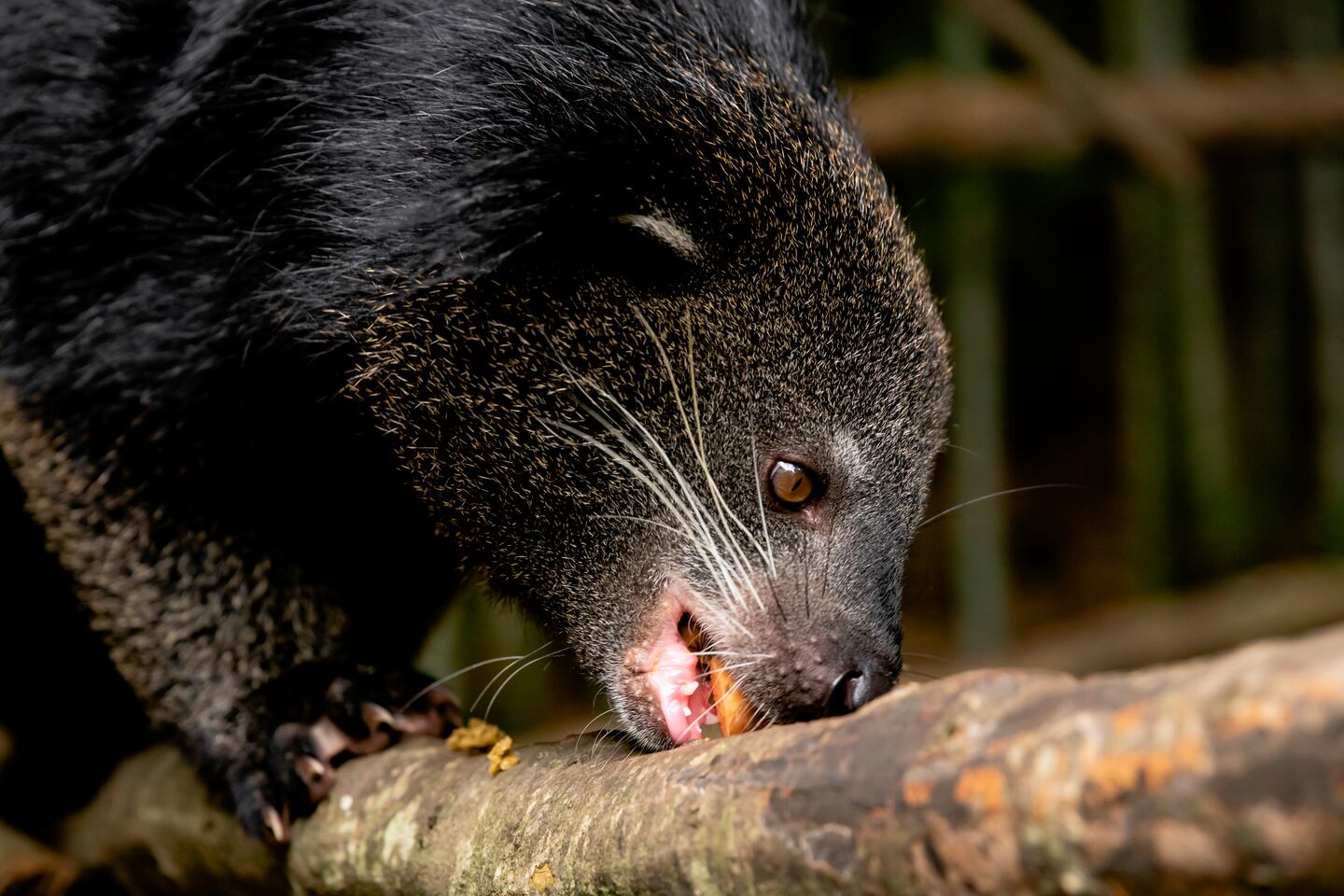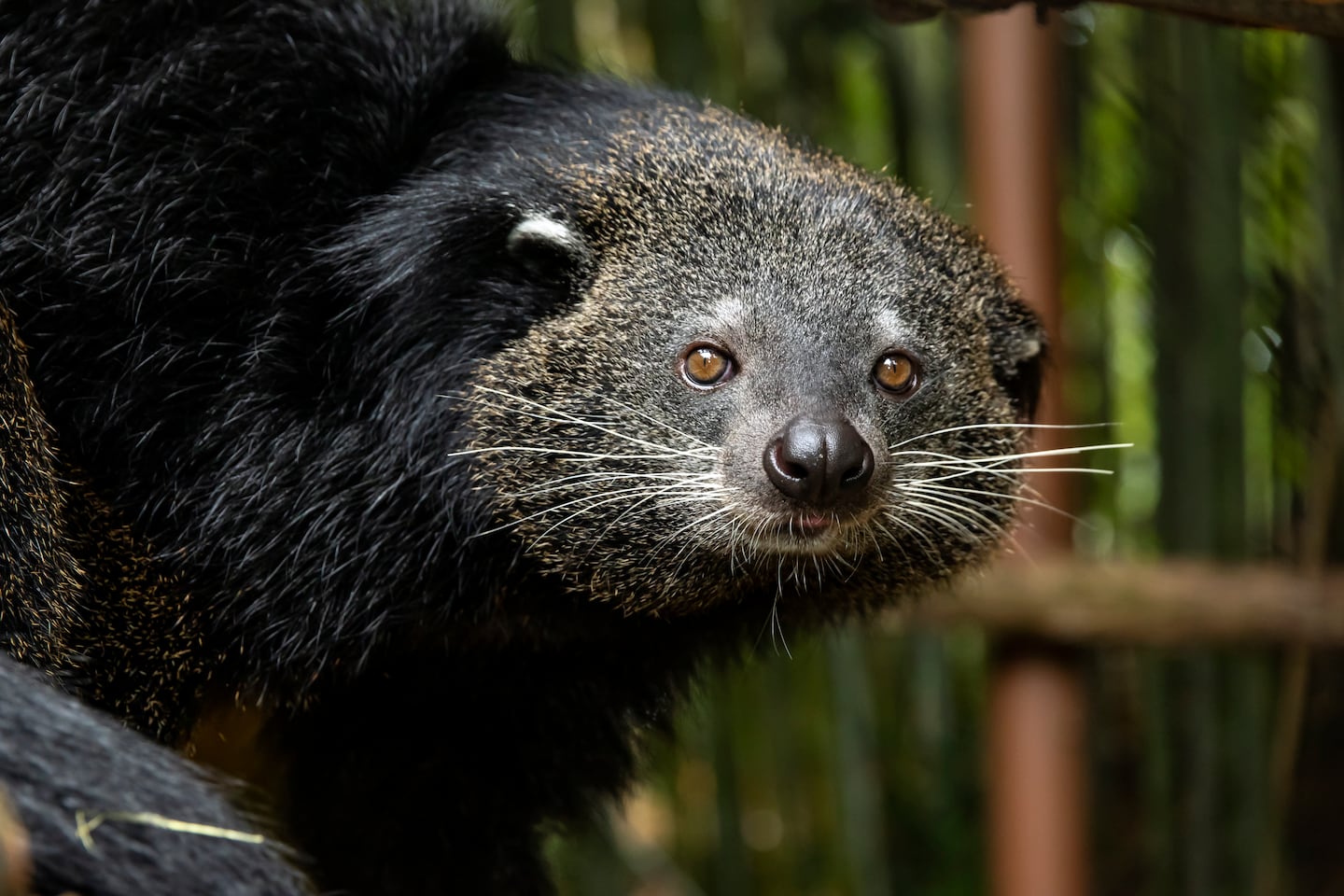ATLANTA — There’s a new, rather peculiar arrival at Zoo Atlanta, one that might have you thinking about catching the latest flick at the movie theater.
Zoo Atlanta welcomed Bramble, a 1-year-old female binturong, to the Complex Carnivores zone. Also known as bearcats for their physical resemblances to both, binturongs are neither bears nor cats but are instead most closely related to civets.
Also distinctive is their scent, which is said to resemble buttered popcorn or corn chips.
A recent arrival from the Roger Williams Park Zoo in Providence, R.I., Bramble is still acclimating to her new home, so there is not yet a guarantee of seeing her.
Once she has had a chance to adjust to her new environment, Bramble will have an opportunity to meet male binturong Baloo. Baloo, who is 2 years old, is another relatively new member of the Zoo’s animal population, having arrived in Atlanta in January 2020.
“We’re excited to welcome Bramble to Zoo Atlanta. We find that many of our guests have never heard of a binturong, so we have a valuable opportunity to acquaint our visitors with a species they may have never known about or thought to protect had they not visited Zoo Atlanta,” said Jennifer Mickelberg, PhD, vice president of Collections and Conservation. “Like so many other species here at the Zoo, binturongs also have an important conservation story to tell, with its accompanying message of change beginning in our own households.”
Bramble and Baloo have been recommended for breeding by the Association of Zoos and Aquariums’ Binturong Species Survival Plan, which seeks to maintain the genetic diversity and long-term sustainability of binturongs living in North American zoological populations.
Native to Southern and Southeast Asia, including Bangladesh, Bhutan, India, Indonesia, Malaysia, Myanmar, Nepal, the Philippines, Thailand, Vietnam and parts of China, binturongs are classified as vulnerable by the International Union for Conservation of Nature. Their most pressing threat is habitat loss to conversion to agriculture, especially for palm oil plantations. Other threats include the pet trade and hunting for their meat, which is considered a delicacy in some parts of their range.
Cox Media Group








